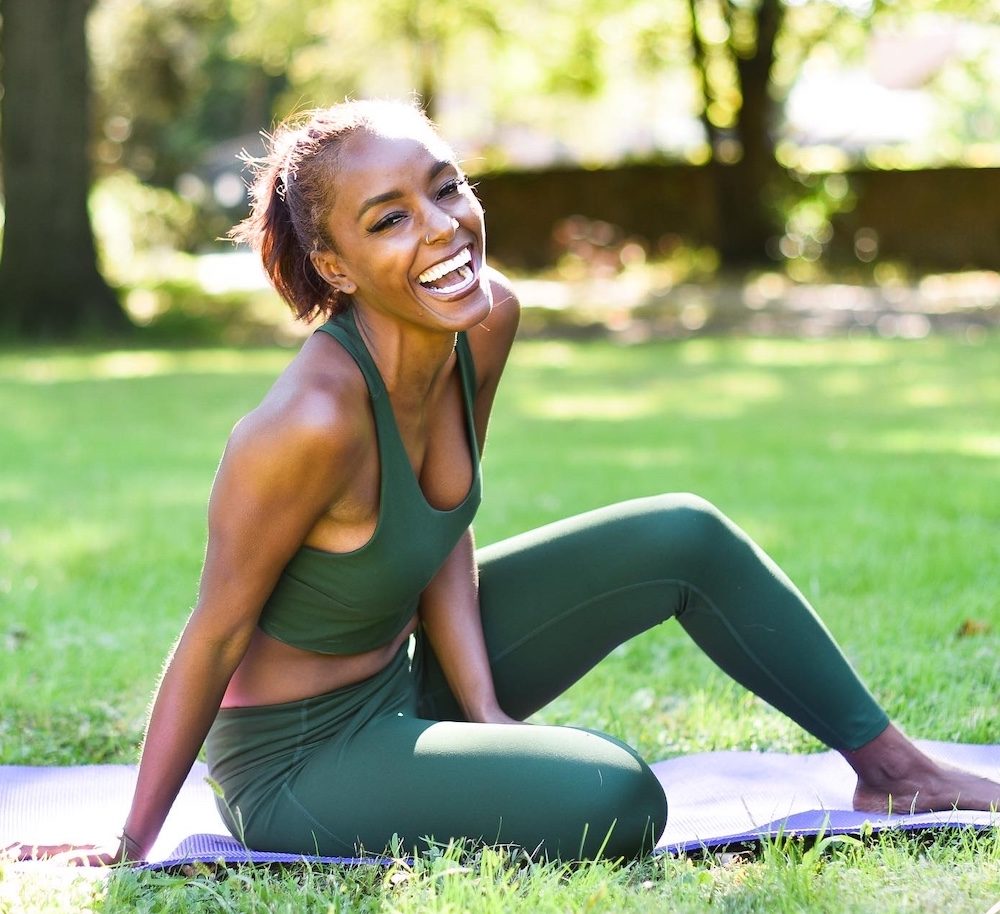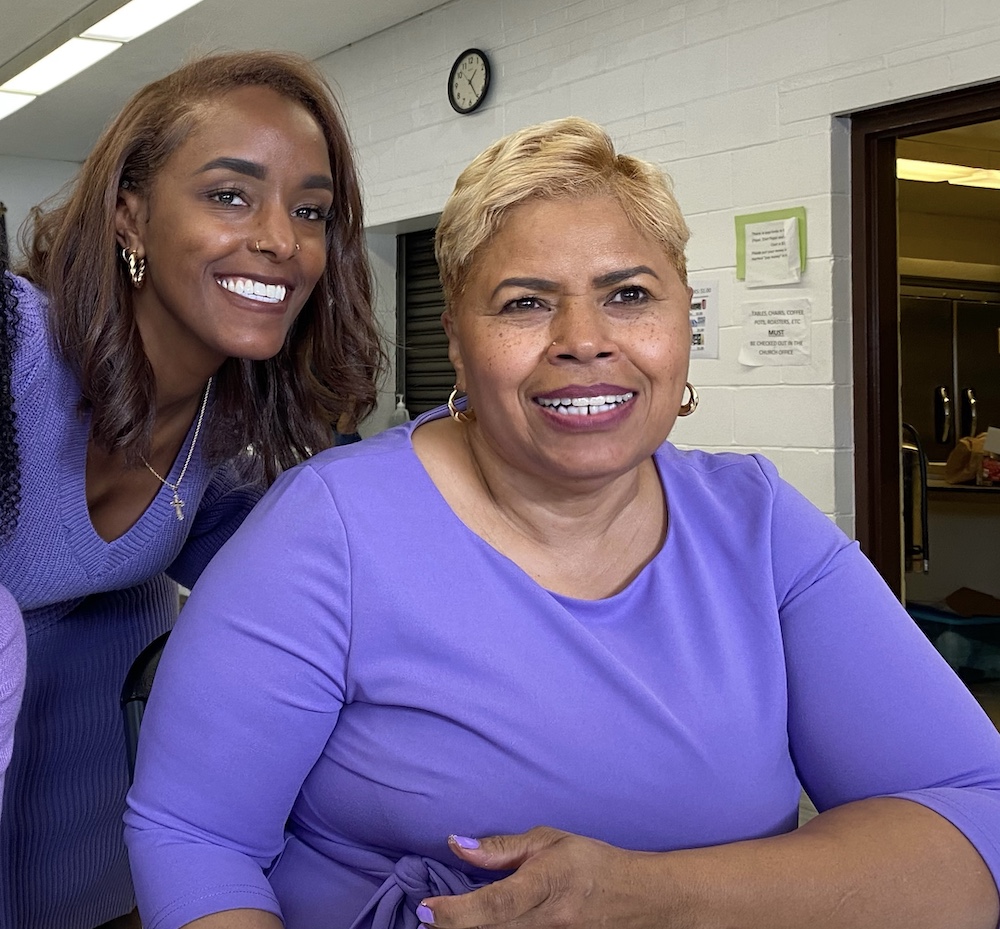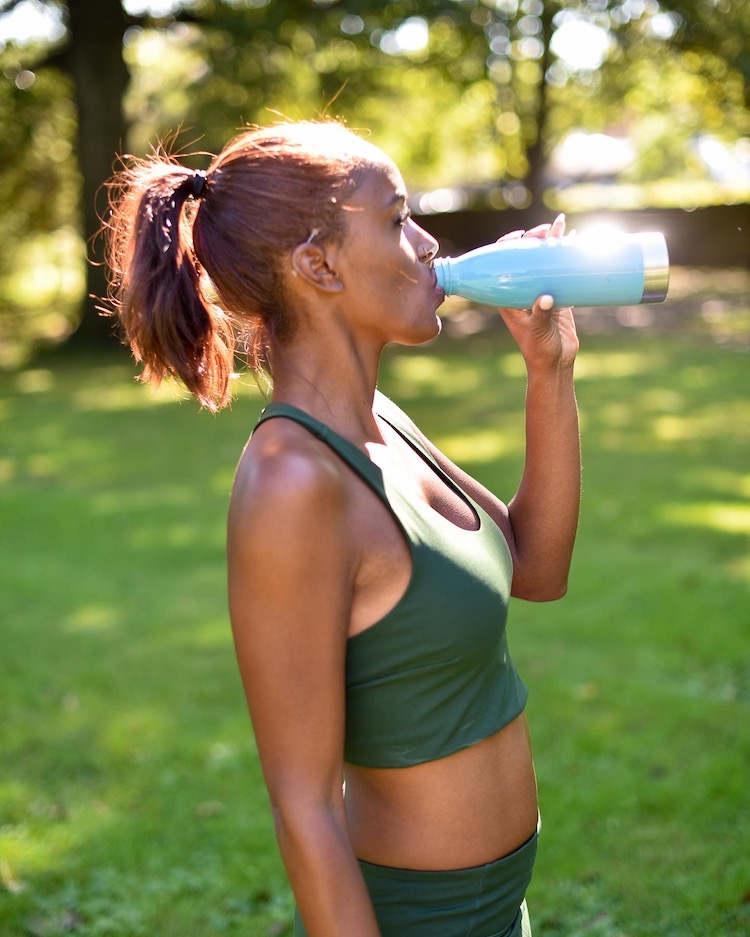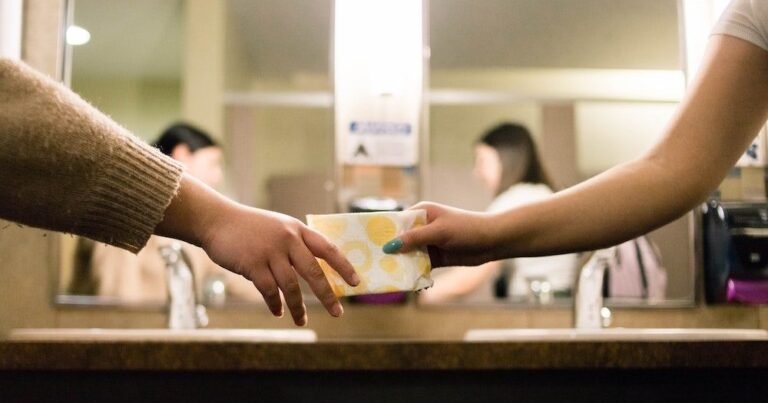“Mom? Mom! I think I started my period,” I said with excitement as I ran toward my mother. She was in our kitchen talking on the phone with a friend, but she gave me her full attention.
“Why do you say that Brittany?” she asked. “Let me see.”
I could hear whomever she was talking to on the phone ask, “Did her breasts start coming in yet?” As if that had to also take place for this to be legitimate.
“Look at my underwear,” I told her. “Do you see this light pink mark here?” I proudly showed her my panties knowing this was the first step towards womanhood.
She was kind, but clear: “Brittany,” she said, “that’s a stain from doing laundry. You will know when you get your period.”

My excitement vanished. I wanted so badly to become a woman and finally tell the other girls in my class that I was no longer the last one waiting. I was a late bloomer when it came to all major adolescent “accomplishments”– first kiss, first boyfriend, first time shaving my legs, first sleepover. All of that.
I even almost got caught stuffing my bra, because I wanted to have boobs like the other girls. I can completely relate to the preteen and teenage girls all over the Pittsburgh area who are feeling all of this as a new school year begins. It’s funny — and frustrating — to think about all the things we do to ourselves to fit in or feel beautiful. We know today’s young girls need our support as they navigate all this.
For me, the day finally came in 8th grade. Standing in a bathroom stall at school, I finally left prepubescence, and I couldn’t believe it. No one or nothing could stop me now! I was a woman!

Fast forward 20 years and I wish I could go back to those prepubescent years. The very thing I wanted so bad has caused me years of debilitating pain, tears, missed work and life events, and even ER visits. Periods can be complicated, and our culture doesn’t give us all the information we need.
See, as women and girls we are told that the menstrual cycle is something we all go through, and pain is normal and to be expected. The message is “take some medicine, or better yet, birth control to ‘suppress or regulate your cycle’ and you’ll be fine.”
But the truth is, a woman’s menstrual cycle is actually her fifth vital sign. Yes, minor cramping and discomfort are normal. But anything more — or the total absence of your cycle — can be symptomatic of a more serious condition. No one taught me this when I was a high school student, and I wish they had. It took 18 years before I was diagnosed with endometriosis, and those lost years are not uncommon: It typically takes seven to 10 years for a woman to be diagnosed after showing symptoms, and it takes even longer for women of color.
Endometriosis is a condition in which tissue (similar to the uterine lining that’s normally shed monthly) grows outside of the uterus. Instead of leaving the body, it becomes inflamed and causes several side effects. For many years I was told to take birth control and pain meds. And when those weren’t working, I was advised to “try having a baby to see if that helps” or “remove the ovary and uterus.” Doctors finally discovered that I had four cysts growing on and around my ovary, which has caused the excruciating periods.
So, no: It wasn’t a “bad period.” My body was alerting me that she needed help.

After that, I dove into all things menstrual health. I had to find out what my period was trying to tell me and how I could support her. The more I learned about the intricacy of the menstrual cycle — the four phases of the cycle, the Infradian Rhythm, the hormone shifts, the pros and cons of the sanitary products available — literally the better my period was each month, and the more I became tuned in with myself.
It took time on my part. It took self-respect. I had to unlearn what was taught (or not taught) in schools and even at home. My period wasn’t a “curse.” Instead, it’s a monthly life-giving process that needs the same quality of care as my skin and hair routine.
Not every girl or woman will encounter the challenges I have, so that’s another story for another time. But beyond potential problems and the emotional toll it can bring, monthly bleeding is also a very energy-intensive process. Even for healthy teen girls, it requires good nutrition, different body movements and extra rest.
So if there is a young girl in your house who has recently begun getting periods or will likely get her first period during this school year, I share this information to help you check in with yourself and with her.
As an educator and advocate for women, here is some of my favorite advice to share:
- Check in with yourself, and with your daughters, nieces, Goddaughters, and anyone else with a vagina that bleeds.
- Let them know it’s important to take your period seriously and respect this part of your body. If someone tells you she can’t walk or leave the house when on her cycle, let her know that isn’t a normal part of a standard cycle.
- Mothers and daughters don’t always have similar experiences with their cycles. If your daughter says she’s in pain that is making her life difficult, BELIEVE HER. Just because your periods were mild doesn’t mean that’s her experience. Periods aren’t genetic. My mother never took any pain meds when she was on her cycle.
And here are some of my favorite ways to show love to my body while on my period:
- Eat well. Avoid fried foods and caffeine. Instead, eat fresh vegetables and fruit and have balanced meals.
- Get more sleep! Whether that’s taking a nap, going to bed earlier or sleeping in, fit more sleep into your life. Rest.
- Wear loose clothing items. Keep pressure off your lower abdomen. You can help younger girls in your family figure out which outfits will make them more comfortable during their cycle, so they don’t have to stress on school mornings about what to wear.
- Use clean sanitary products. Choose a product that works for you: Not what everyone else is using. And learn about the ingredients in the products you buy, to make sure they are clean and healthy.
- During your cycle, take time to sit quietly and acknowledge what is happening in your body. What is she trying to tell you? What have you been ignoring? What does she like that you are doing?
As this new school year begins, your daughter may join the “women’s society” at some point this year. Celebrate it! Talk about it!
If she doesn’t want to talk to you about it, observe her and her body language. Is she in pain? Is she running through products? Is she missing multiple days of work or school? Support her, and maybe that means unlearning and relearning how to better support YOURSELF and YOUR PERIOD.
We know one thing for sure: Teen girls will learn about periods one way or another. Either from you or likely TikTok and friends. It’s probably best coming from YOU!



